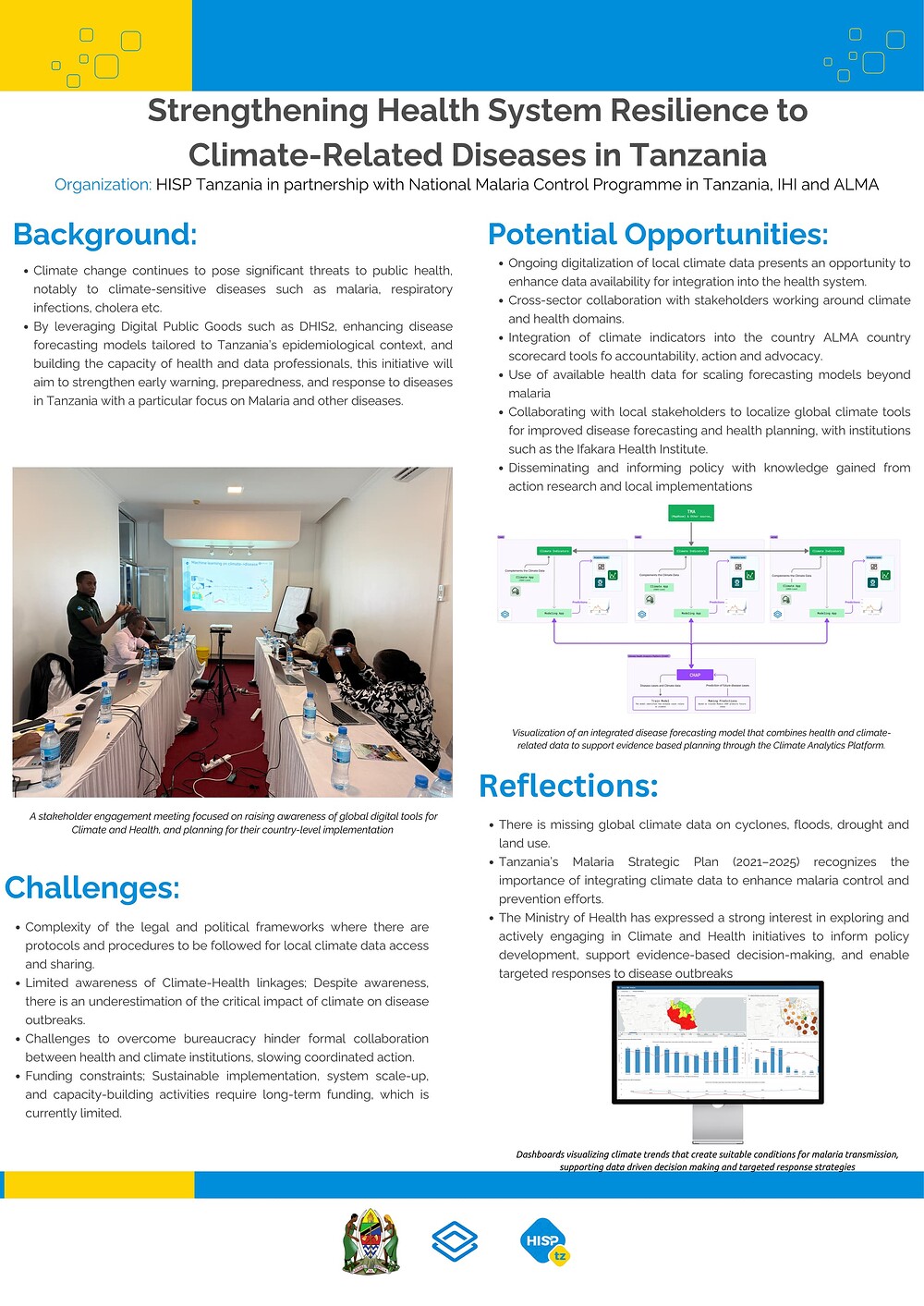AI Generated Summary
This document outlines an initiative by HISP Tanzania, in partnership with the National Malaria Control Programme, IHI, and ALMA, to strengthen Tanzania’s health system resilience to climate-related diseases like malaria, respiratory infections, and cholera.
The initiative aims to enhance early warning, preparedness, and response by leveraging Digital Public Goods such as DHIS2, improving disease forecasting models, and building the capacity of health and data professionals.
Key opportunities include the ongoing digitalization of local climate data, cross-sector collaboration, integration of climate indicators into ALMA country scorecard tools, scaling forecasting models beyond malaria, localizing global climate tools, and using research to inform policy.
Challenges identified are the complexity of legal frameworks for climate data access, limited awareness of climate-health linkages, bureaucratic hurdles to inter-institutional collaboration, and funding constraints for sustainable implementation and capacity building.
Reflections highlight the lack of global climate data on certain events (cyclones, floods, drought, land use), Tanzania’s Malaria Strategic Plan (2021-2025) recognizing climate data integration, and the Ministry of Health’s strong interest in climate and health initiatives to inform policy and decision-making. The document also visualizes integrated disease forecasting models and dashboards for malaria transmission trends.
